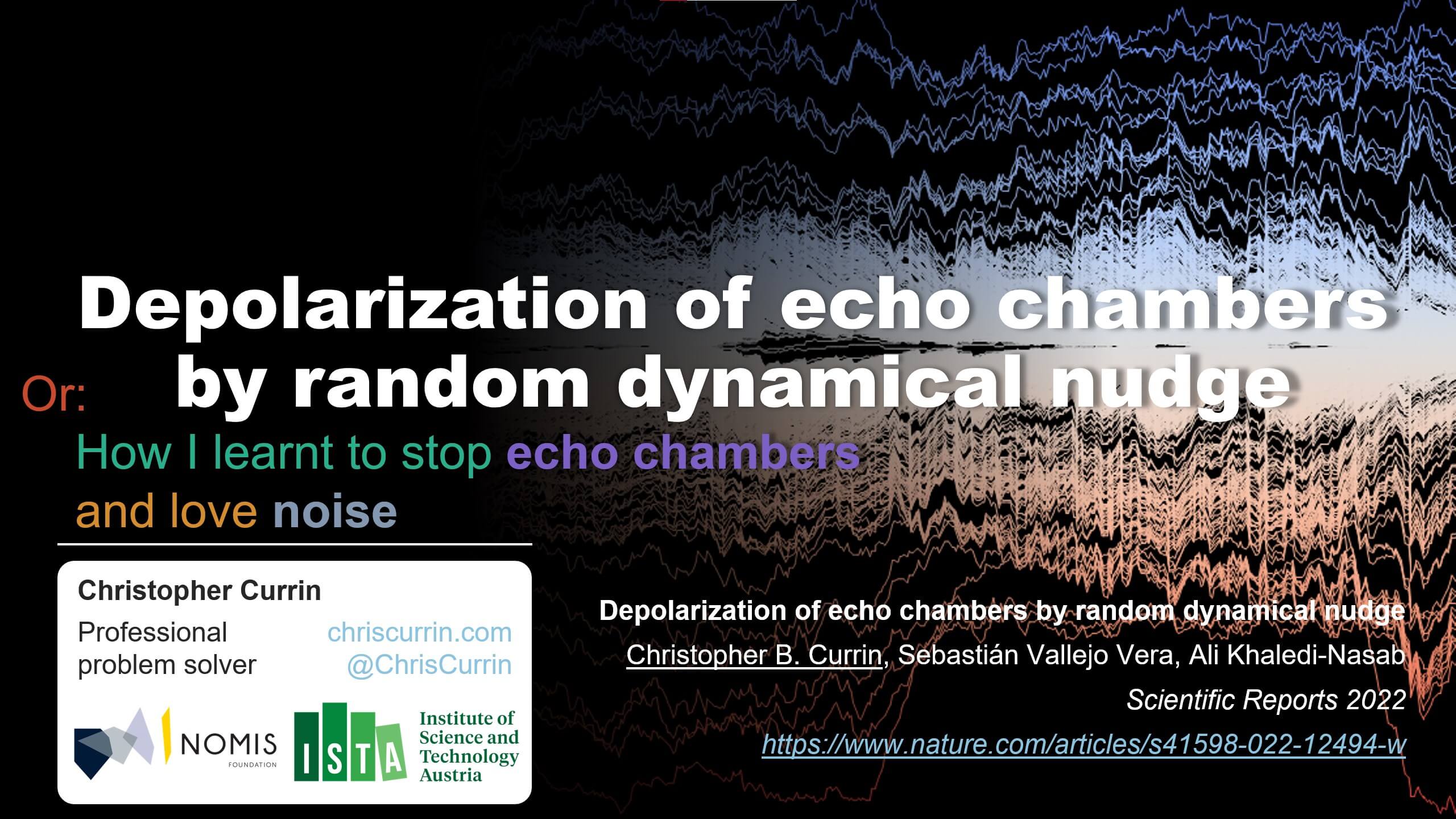Depolarization of echo chambers by random dynamical nudge. Or, How I learnt to stop echo chambers and love noise.

In reference to this paper: Currin, C.B., Vera, S.V. & Khaledi-Nasab, A. Depolarization of echo chambers by random dynamical nudge. Sci Rep 12, 9234 (2022). https://doi.org/10.1038/s41598-022-12494-w
People often form echo chambers on important issues, whereby they tend to engage more with like-minded peers than those holding an opposing opinion. In this talk, I will explain how we use an existing opinion dynamics model that naturally forms echo chambers with the goal of finding a feedback mechanism that bridges disparate communities. I will then introduce the random dynamical nudge (RDN), which presents each agent with input from a random selection of other agents’ opinions over time to drive the network towards a singular community.
Dr Christopher Currin is a NOMIS Fellow and postdoctoral researcher at the Institute of Science and Technology Austria (ISTA), where he is a computational neuroscientist investigating the dynamics of human neurons derived from induced pluripotent stem cells (IPSCs). Chris has a wonderfully weird background in machine learning, neuroscience, and psychology; he completed his PhD in Neuroscience from the University of Cape Town, South Africa in 2020 and moved to Austria a week after his pandemic wedding.